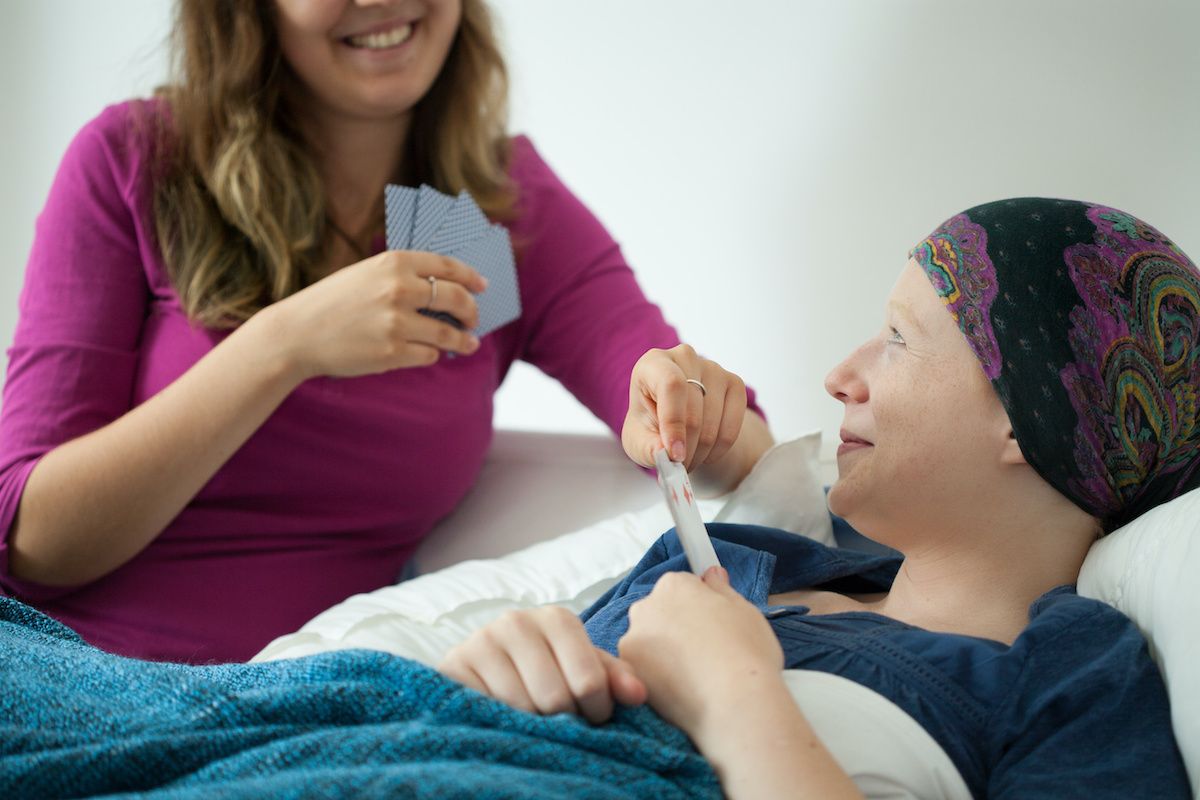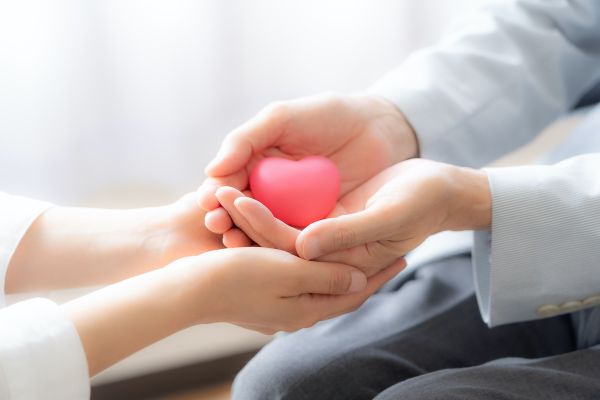Thoughtful and practical ways you can help lift their burden
Cancer patients with supportive loved ones cope better emotionally than those who don’t have support, according to studies. Yet many patients have trouble asking for or accepting help. Friends, frightened and unsure, tentatively offer a “Call me if I can do anything.” Yet someone grappling with a world turned upside down by cancer often lacks the time and energy to coordinate a support network and assign tasks. Here are specific things you can do to help.
Support for heart and mind
- Learn about the type of cancer involved. This is for your own education and understanding. It prepares you if your loved one wants to talk about upcoming decisions and treatment. Let them take the lead on when and what aspects to discuss. Avoid using your new knowledge to lecture, advise or force a conversation.
- Listen and let them express their feelings. Be prepared — emotions may run high and you may become uncomfortable. Avoid telling them how they should feel. Do not change the subject if they talk about possibilities that you find distressing or if they engage in dark humor.
- Reach out to a caregiver support group, either through a local organization or online, if you feel overwhelmed. Roswell Park Comprehensive Cancer Center's Spiritual Care Department hosts a support group specifically for caregivers. See when this group meets on our patient calendar.
- Ask if they would like to talk with a survivor who has been in their shoes. Roswell Park’s Cancer Coach program connects patients with cancer survivors who know firsthand how a cancer diagnosis changes your life. Talking with someone who has lived with cancer can reduce anxiety and isolation. Cancer coaches are trained volunteers who provide comfort and practical information, not medical advice, for patients.
- Provide comfort. Hold their hand, offer blankets or scarves if they feel chilly, and do deep breathing exercises with them to lessen anxiety. Tell them you love them and will stay with them on this journey.
- Provide distraction. Laughter is wonderful medicine. Watch a comedy together or get them a light-hearted book to read.
Helpful practical acts
- Stay in touch. Check in regularly during treatment and beyond. Many patients say they stop hearing from friends after an initial wave of support. Keep sending notes or texts but don’t expect responses.
- Help them focus on caring for themselves through sleep, exercise, relaxation, healthy eating and taking medications on schedule.
- Assist in scheduling and managing medical appointments. Do they need to bring x-rays and medication lists to their visits? Drive them to appointments and offer to go in with them. If it’s a doctor’s appointment, take notes for them or record the discussion. Sit with them during chemotherapy appointments.
- Prepare and deliver a meal — or order a meal for delivery. Many local restaurants deliver through such services as Grub Hub, Uber Eats or DoorDash.
- When you’re shopping, text the patient (or caregiver) and ask whether they need anything.
- Hire a service to clean their house, or offer to do it yourself.
- Before you visit, ask if they are up for it. Bring snacks, a craft you can do together, or a movie. If they are feeling well enough, take them on an outing.
- Discuss fun “pick-me-ups” and then make the arrangements — for a manicure or massage, for example. Buy some new books or magazines, or download their favorite music or relaxing/ guided imagery talks onto their phone, tablet or laptop.
- Tend to their children, dogs, plants, bill paying, or sending emails — whatever needs attention.
Support Services at Roswell Park
We are here to help — whether you're seeking nutritional advice, symptom relief, or want to talk with a counselor, we offer an array of services and resources to address any need.
Do not take it personally if they reject your gifts and offers to help. There may be days they do not want to see you or even talk to you. Remember, they are the ones in need right now. They must focus on caring for themselves and building up their emotional and physical strength.
Take your cues from your loved one. Some days they may withdraw; other days they will want you at their side. Let them know you are their friend and ally every day.
Want to learn more?
- Roswell Park’s 11 Day Power Play Cancer Resource Center
- Informal (not a paid professional) Caregivers in Cancer – National Cancer Institute
- Resources for Caregivers – National Cancer Institute



